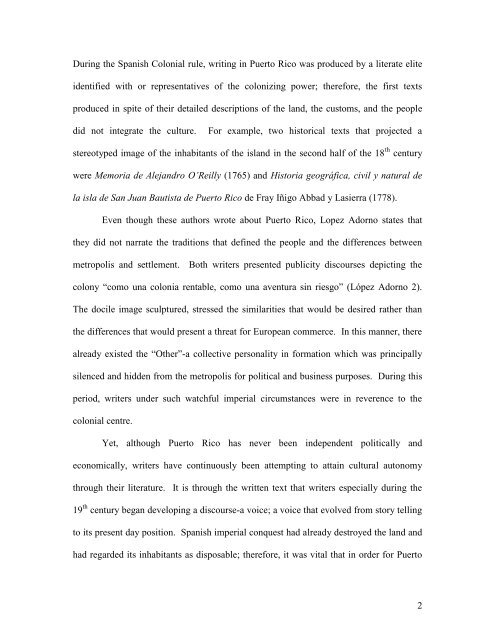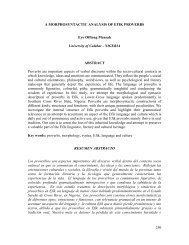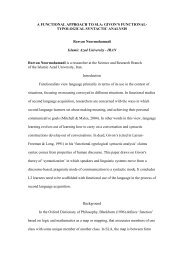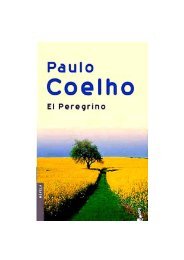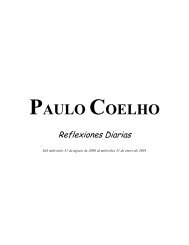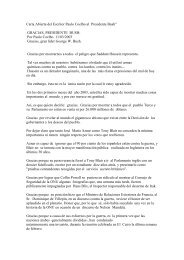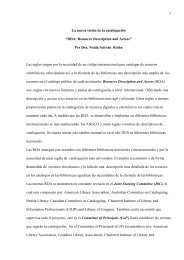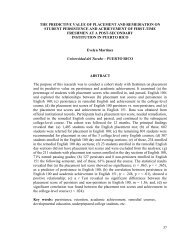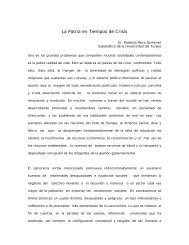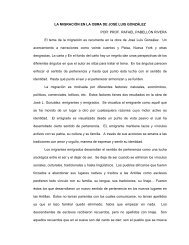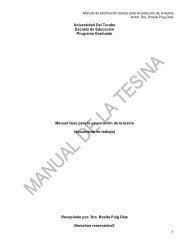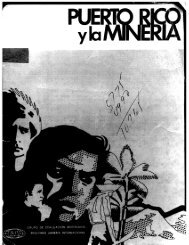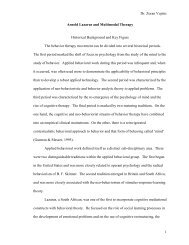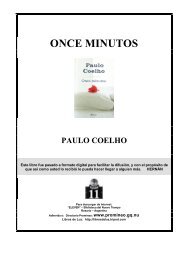Jennet Rodriguez Betancourt
Jennet Rodriguez Betancourt
Jennet Rodriguez Betancourt
You also want an ePaper? Increase the reach of your titles
YUMPU automatically turns print PDFs into web optimized ePapers that Google loves.
During the Spanish Colonial rule, writing in Puerto Rico was produced by a literate elite<br />
identified with or representatives of the colonizing power; therefore, the first texts<br />
produced in spite of their detailed descriptions of the land, the customs, and the people<br />
did not integrate the culture. For example, two historical texts that projected a<br />
stereotyped image of the inhabitants of the island in the second half of the 18 th century<br />
were Memoria de Alejandro O’Reilly (1765) and Historia geográfica, civil y natural de<br />
la isla de San Juan Bautista de Puerto Rico de Fray Iñigo Abbad y Lasierra (1778).<br />
Even though these authors wrote about Puerto Rico, Lopez Adorno states that<br />
they did not narrate the traditions that defined the people and the differences between<br />
metropolis and settlement. Both writers presented publicity discourses depicting the<br />
colony “como una colonia rentable, como una aventura sin riesgo” (López Adorno 2).<br />
The docile image sculptured, stressed the similarities that would be desired rather than<br />
the differences that would present a threat for European commerce. In this manner, there<br />
already existed the “Other”-a collective personality in formation which was principally<br />
silenced and hidden from the metropolis for political and business purposes. During this<br />
period, writers under such watchful imperial circumstances were in reverence to the<br />
colonial centre.<br />
Yet, although Puerto Rico has never been independent politically and<br />
economically, writers have continuously been attempting to attain cultural autonomy<br />
through their literature. It is through the written text that writers especially during the<br />
19 th century began developing a discourse-a voice; a voice that evolved from story telling<br />
to its present day position. Spanish imperial conquest had already destroyed the land and<br />
had regarded its inhabitants as disposable; therefore, it was vital that in order for Puerto<br />
2


